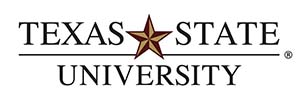Texas A&M University-Corpus Christi Online Family Nurse Practitioner Programs
What to Expect from the Texas A&M University-Corpus Christi Online Family Nurse Practitioner Programs
Admission Requirements: The following requirements apply to the varying degrees and entry points:
- BSN-MSN Entry: Be a licensed RN with a bachelor of science in nursing (BSN) degree.
- RN Bridge Entry: Be a licensed RN with a non-nursing bachelor’s degree.
- RN-MSN Entry: Be a licensed RN with an associate’s degree in nursing (ADN).
- Post-Master’s Certificate: Hold a master of science in nursing (MSN) degree plus unencumbered RN licensure.
Application materials include an application and fee, resume, an essay/personal statement, three references, official transcripts, and proof of English language proficiency if required. Once admitted to TAMUCC, students must complete and submit a background check and drug screen, meet immunization requirements, and purchase professional liability insurance.
State Restrictions: TAMUCC accepts students from all states except Maryland into the FNP programs. Despite this fact, it is still the student’s responsibility to verify enrollment and certification eligibility with their State Board of Nursing as well as the College of Nursing and Health Sciences through Texas A&M University.
Study Plan: Students are admitted to the MSN program in the Fall only. The MSN with BSN entry can be completed in two and one-half to three years and is designed to be part-time to allow nurses to work full-time. The RN Bridge program adds one year of full-time coursework to the program. The RN-MSN program adds at least one year of full-time coursework depending on prior education, however, more likely an additional two years are required.
Post-Master’s FNP Certificate students begin in the Summer and can complete the program in about two years depending on completed courses prior to beginning the program. All coursework is online and clinicals are completed local to the student.
MSN – FNP Curriculum: The TAMUCC MSN program comprises 49 credits plus 500 clinical hours. Core graduate nursing courses comprise 12 credits and include Science in Nursing; Health Policy and Cultural Diversity; Research Methods in Advanced Nursing Practice; and Introduction to Advanced Practice Role Development.
Role specialization courses include Advanced Pharmacological Concepts; Wellness and Health Promotion; Finance for the Nurse Practitioner; Advanced Physiology and Pathophysiological Applications; Advanced Health Assessment and Differential Diagnosis; Management of Acute and Chronic Illness I-II; and Integrated Clinical Practice: FNP.
RN Bridge Program: The RN-Bridge program can be completed by RNs with a non-nursing bachelor’s degree. The bridge program comprises 65 credits in total plus 500 clinical hours. Bridge courses include Health Assessment; Nurse as Research Consumer; Nursing Care of the Community; and Leadership/Management. These credits add one year of full-time coursework before beginning the graduate nursing courses.
RN-MSN Program: The RN-MSN program can be completed by RNs with an associate’s degree in nursing. The program comprises 126 credits plus 500 clinical hours. These students will not earn a BSN but will complete the following undergraduate courses before beginning the MSN program: Health Assessment; Nurse as Caregiver; Nurse as Research Consumer; Community; and Leadership. These credits add one year of full-time coursework before beginning the graduate nursing courses. In addition, RN-MSN students must meet the requirements of the A&M-Corpus Christi University Core Curriculum transfer policy and complete an additional 58 credits if they have not already done so. These courses cover English, history, government, biology, mathematics, psychology, and electives.
Post-Master’s FNP Certificate Curriculum: The FNP Post-Master’s Certificate comprises 37 credits plus 500 clinical hours. Certificate students are exempt from the core graduate nursing courses once it is verified that the course requirements have been met previously. After verification, certificate students take the role specialization courses listed for the MSN-FNP program.
Online Experience: TAMUCC utilizes Blackboard as its online Learning Management System (LMS). Blackboard allows for the display of course content, faculty/peer interaction, and multimedia resources. The Blackboard LMS can be used to view syllabi, grades, and course content, submit grades, participate in discussion boards, blogs, email, and other interactive content, as well as access audio/visual materials. Online student orientation is required to begin using the Blackboard system through TAMUCC. Online students have access to student services including academic advising, academic support programs, technical support, an online bookstore and library, and career counseling.
On-Site Requirements: There are no on-site requirements for the online FNP programs. Students complete clinicals locally at approved locations and all other coursework is online. Students may visit campus at any time as well as participate in graduation ceremonies on campus.
Paying for Texas A&M University-Corpus Christi Online FNP Programs
Texas A&M University-Corpus Christi charges approximately $397.27 per credit plus fees for the MSN and Post-Master’s Certificate for Texas residents and $863.78 per credit plus fees for non-residents. The RN Bridge program costs $392.56 per credit plus fees for residents and $815.19 per credit plus fees for non-residents. The RN to MSN program for ADNs costs approximately $385.57 per credit plus fees for residents and $830.05 per credit plus fees for non-residents. Prospective students should contact the TAMUCC College of Nursing and Health Sciences for full and updated tuition information as costs may change from year to year.
Texas A&M University-Corpus Christi offers federal Stafford loans and Graduate PLUS Loans according to the FAFSA. Other valuable options for funding a graduate degree include employer tuition reimbursement programs, tuition discounts, and outside scholarships and grants. Students can inquire with the TAMUCC Office of Student Financial Assistance (OFSA).
Please Note: The tuition listed below in the tables is an average of undergraduate and graduate tuition where applicable for residents and non-residents, not including differential tuition for the first credit each term.
MSN – Family Nurse Practitioner
MSN – Family Nurse Practitioner (RN Bridge for RNs with non-nursing bachelor's)
Post-Master's Certificate – Family Nurse Practitioner
RN-MSN – Family Nurse Practitioner (For RNs with ADN)
6300 Ocean Dr.
Corpus Christi, Texas 78412
Program Essentials
MSN – Master of Science in Nursing
FNP – Family Nurse Practitioner
Fall
Yes
0
49
500
CCNE – Commission on Collegiate Nursing Education
Program Admissions
BSN – Bachelor of Science in Nursing
No GRE Required
None
MD, UT
Program Tuition
49
$863.78
$42,325.22
$1,350.57
$66,177.93
Program Essentials
MSN – Master of Science in Nursing
FNP – Family Nurse Practitioner
Fall
Yes
0
65
500
CCNE – Commission on Collegiate Nursing Education
Program Admissions
Bachelor's (Non-Nursing) – Non-Nursing Bachelor's Degree
No GRE Required
None
MD
Program Tuition
65
$863.78
$56,145.70
$1,350.57
$87,787.05
Program Essentials
Post-Master Certificate – Post-Graduate (Post-MSN) Nursing Certificate
FNP – Family Nurse Practitioner
Fall
Yes
0
37
500
CCNE – Commission on Collegiate Nursing Education
Program Admissions
MSN – Master of Science in Nursing
No GRE Required
None specified
MD
Program Tuition
37
$863.78
$31,959.86
$1,350.57
$49,971.09
Program Essentials
MSN – Master of Science in Nursing
FNP – Family Nurse Practitioner
Fall
Yes
0
126
500
CCNE – Commission on Collegiate Nursing Education
Program Admissions
ADN – Associate Degree in Nursing
No GRE Required
None
MD
Program Tuition
126
$863.78
$108,836.28
$1,350.57
$170,171.82
Tuition is calculated based on credits, at the published tuition rate. Rates may change, so please check here for the latest tuition information. For programs with variable tuition rates, we use the rates for part-time students. “Resident” and “non-resident” refer to the student’s school-recognized state residency status. Tuition number represents the cost of tuition for the entire program, not per semester or year. Estimated total tuition does not include additional fees.

Sara Navratil
WriterSara Navratil is a freelance writer and a Certified Canfield Success Principles Trainer. She’s the owner of Sara Liza Life, a company dedicated to helping people rewrite their lives. She enjoys researching and writing about healthcare-related topics, including information on online NP programs. When not working she likes to read, bake, and spend time with her family.



